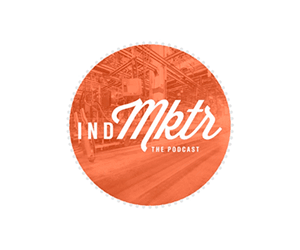As industrial marketers, we often rely on formal language to communicate with our technical audiences. Years of writing white papers and detailed case studies have taught us to avoid colloquialisms, always write in the third person, and never start a sentence with “but.” But is that how we should always write?
We default to formal writing for industrial marketing because it aligns with reference material typically found in the industrial sector. As content marketers, we have to remember that not everything we write is being submitted to The Journal of Engineering Technology. Sometimes it’s OK to be a little informal — actually, more often than not.
Formal vs. Conversational Writing
Content marketing is a strategy based on the idea that creating highly relevant content will attract consumer attention and maintain interest, promoting further engagement. Essentially, start a conversation. What better way to start a conversation than by writing conversationally?
It’s simple: Write like you’re talking to a friend. If you were explaining the concept of sandwiches, you wouldn’t say, “Sandwich making is the aggregation of raw or processed materials such as bread, meat, condiments, and cheese, which are then combined into a single assembly through an iterative vertical stacking process.” You’d say, “You put pieces of meat, cheese — and whatever else you want — between two slices of bread.”
While technically accurate, the explanation above is impersonal and may give the impression that the author is more concerned about sounding technical than actually informing the reader. Aloofness and self-importance are not what you want to convey in your marketing communications — if you want people to engage with your content. Even science supports this theory.
Conversational Writing Aids Retention
The main benefit of conversational content for marketers is that it’s actually easier to retain. Research shows that people are more likely to remember details from a friendly conversation than a dry, technical explanation.
Studies by Drs. Roxana Moreno and Richard E. Mayer (2000b, 2004) used a computer-based educational game about botany to test students’ learning retention. Students were given two versions of the game, one featuring formal scripts and the other informal:
- Formal script example: “This program is about what types of plants survive on different planets. For each planet, a plant will be designed. The goal is to learn what type of roots, stem, and leaves allow plants to survive in each environment.”
- Informal script example: “You are about to start a journey where you will be visiting different planets. For each planet, you will need to design a plant. Your mission is to learn what type of roots, stem, and leaves allow plants to survive in each environment.”
In five out of five studies, Moreno and Mayer found that students given the informal text performed 20 to 46 percent better than those using the formal text. Informal language tricks the brain into thinking it’s having a conversation so that it absorbs more information in case it needs to contribute to the discussion. In other words, your brain has an easier time recalling and retaining information if it thinks it’s about to talk to someone.
If You Write Email, You’ve Already Mastered Conversational Writing
Chances are you often write conversationally without even realizing it. When you email friends and family, you’re typically writing in an affable, informal tone. You naturally explain complex or abstract ideas off the top of your head using clear, simple language.
Try to replicate that friendly style in your business writing. Remember: You’re not always writing for technical experts that keep track of all the latest industry terminology. For non-reference documents, your writing should be understandable to non-technical CEOs and purchasing agents — i.e., the people who could be the ultimate decision makers in your business conversation.
Overusing buzzwords can make your writing confusing and forgettable. And marketers are especially guilty of this.
A true subject matter expert can deliver information in a way that is understandable to someone who knows little to nothing about the topic. Try to strip away the complexity of a concept and present it in a way that others, like your AOL-using grandpa, can understand.
And remember: Always be professional. Conversational writing is not an excuse to talk like you’re on Justin Bieber’s Twitter page. You’re an expert; sound like it.
Talk to Us about Conversational Writing
Our articles are always open to discussion. If you have an idea to contribute, agree with something we said, or want to express a difference of opinion, please leave a comment and we’ll be happy to start a conversation.






